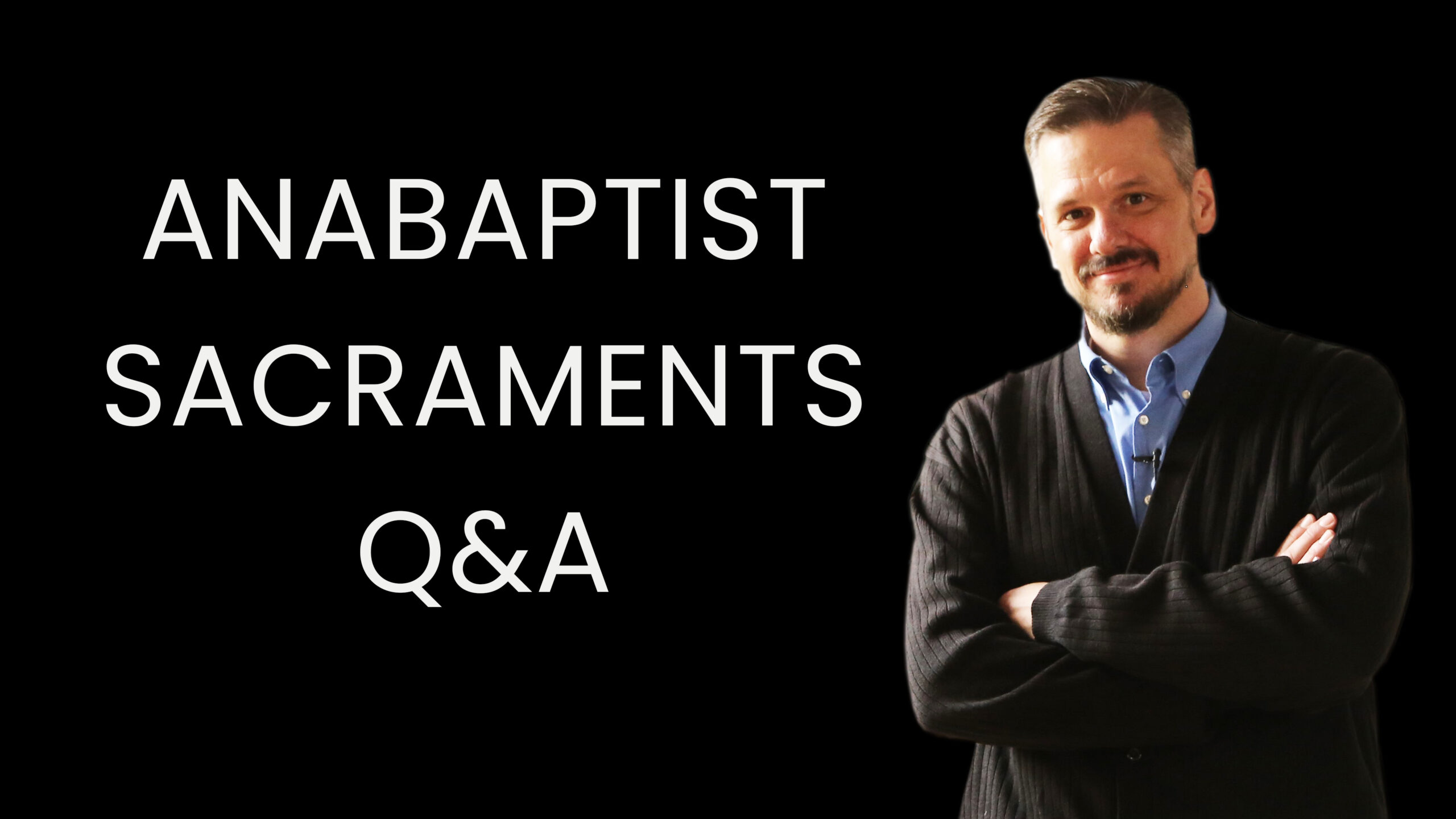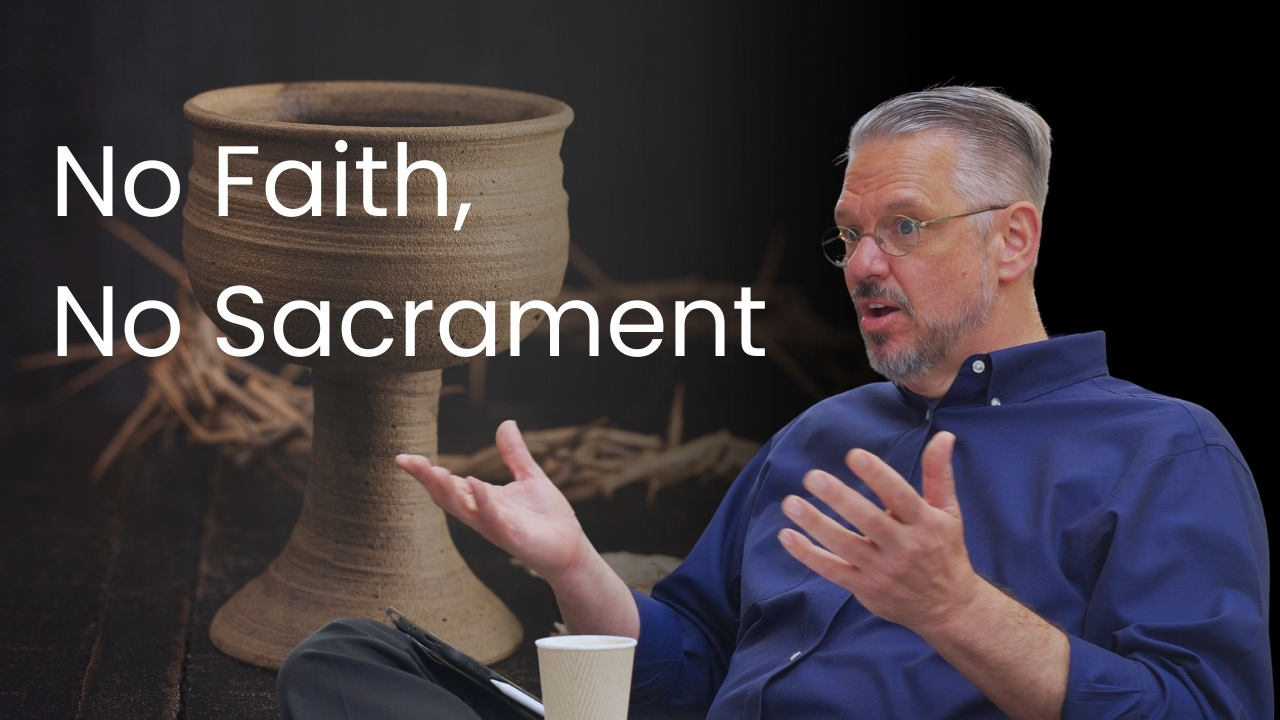The following is taken from an interview with Dean Taylor conducted by Reagan Schrock.
What is the essence of Anabaptism? When we talk about the essence of Anabaptism, one thing that needs to be addressed from the very beginning is that Anabaptism is not a denomination. In other words, there is not a church or denomination called “Anabaptists”. It’s not like United Methodist, or Mormon, or something like that. Just as there is a Protestant worldview and a Catholic worldview, so there is an Anabaptist worldview. When we say Anabaptist, we’re talking about an entire way to interpret the Scriptures.
The essence of what is particular about the Anabaptist worldview is that it has a focus on Jesus Christ—on His teachings, His dreams for Humanity, His teachings to us—and putting those teachings into practice in our lifetime. Conrad Grebel, one of the earliest Anabaptists from before 1525, wrote a letter to his friend Vadian, and in that letter, Vadian begins to pull away from the radicals that were studying with Zwingli in Zurich. Grebel hits on two things in that letter that are really striking. The first thing he said was, “I believe in the word of God without a complicated interpretation and out of this I speak.” So he’s saying that, when we look into the Scriptures and the Bible says something, we should just take it at face value; and actually, if you look at the different groups of radical movements throughout the world since the time of the Apostles, it seems like you get a bunch of people who get the word of God, open it up and just say “let’s do it”.
For example, let’s say that we had an Anabaptist Study Bible. When we come to the passage of Scripture that says, “love your enemies”, there would be a footnote down at the bottom of the page that would then say, “What this really means is, ‘love your enemy’”. The second thing he said in that letter was that the words of the Lord were meant to be put into practice. Now, everybody kind of says that to some degree, but not really.
There was a difference with the Anabaptists from the very beginning. During the Protestant Reformation, which included the studies of Zwingli and all that was happening in Zurich, there were teachings about the grace of God and about the Holiness of God. The Anabaptists were loving every bit of that, but what they saw was that there was no putting into practice the actual teachings of Jesus. So instead of seeing the sayings of Jesus as some sort of meditation or something to be put into a different millennial, like when you’re in heaven, they saw these as the dreams of Jesus Christ. The teachings of Jesus Christ were for Humanity today. They were the cure for Humanity. So then there was this act of working out, of putting the teachings of Jesus into practice, and those things are what we can call the essence of early Anabaptism.
Really the teachings of Jesus are quite simple, but we over complicate things. Jesus gave us the idea that we should come to Him as a child. It’s not necessarily easy, but it is simple. For the first 300 years of the church, they took it very simply. What if we were to begin to ask “What if Jesus really meant every word He said?” If we were to go through the Sermon on the Mount and look at the issues Jesus addresses, such as the teachings on the permanence of marriage, on lawsuits, on our economics, on warfare, and if we were to go out of our way to create a church where everything that Jesus commanded us to do we did exactly the opposite, we would come up with something like the modern American Church. What if Jesus actually meant these things to be worked out into in our everyday lives?
How is the Anabaptist approach to these teachings different than say an Evangelical or a Catholic who would also claim that they have a strong allegiance to those teachings? Again, we’re not talking about a denomination. The Anabaptist worldview emphasizes a focus on the teachings of Jesus. The Catholics, even the Evangelicals would all agree that the Word of God is completely true. Pondering this difference, while not being judgmental on anyone else, I asked the question, “Can a person be a follower of Jesus without following Jesus?”
Some would say that, once you are saved and you become a follower of Christ, you don’t really have to be a follower as long as you are saying that you are identifying with Jesus. But are we living as followers as well? Our Salvation is a person—it’s Jesus. Our Salvation is not a creed, or a doctrine, or a recognition in our mind. Our Salvation is the very person of Jesus Christ. Christ within us is salvation, not a mental assent to His death, not a mental assent to a certain Creed; but Christ within us, as being dead and born again into Christ. If our emphasis is that we are born again and safe, and everything else is kind of extra, then we’ve lost it. But if the emphasis is on the very person of Jesus Christ, then His salvation, His grace, His teaching, His life, His example become exactly that by which we want to mold ourselves.
The difference between the Anabaptist and Evangelical view can be seen in Luther’s famous letter he wrote called “Sin Boldly”. In this letter Luther says, “It suffices that through God’s glory we have recognized the Lamb who takes away the sins of the world.” So in other words, a mental recognition, a mental assent to who Jesus is in the facts of His atonement. Luther says it “suffices” that we recognize who Jesus is. I say no. I think the scriptures say it’s suffices us when the Lamb of God is inside us and we are born again. If this is true and a reality in our lives, then all those passages where Jesus is talking about Judgement Day and about those who obey Him, make perfect sense. It’s still not us by our own strength; it’s Christ within us. The early Church believed this way.
When you read through the early Church writings, they believed that Jesus was the center of their faith, that His teachings were for Humanity. But then when we get to Constantine in 325, there was a shift in which you could simply say the proper Creed and that meant you were now a Christian. The problem was not with the words of the Nicene Creed. The problem was that the focus was no longer on the practice of Christ within us and our salvation being found in Jesus. The emphasis began to be put on having a proper understanding of this Christology that they were propagating. The focus was no longer on the very person of Jesus Christ. He has given us His plan for humanity. He has given us salvation and the Holy Spirit to live it out and He wants to live this in us. His teachings are for us; they’re for today and they’re beautiful, and will change the world.
Some people of Evangelical background would say that the teachings of Jesus are for a new Millennial, or for heaven or something yet to come. But I heard someone ask once, “How hard is it to love your enemies in heaven?” These teachings are for today. They’re the cure for humanity. We need a Biblical hermeneutic that focuses on the teachings of Jesus Christ, believing the Word of God, and allowing His plan for humanity to be lived out in this world.









Leave a Reply